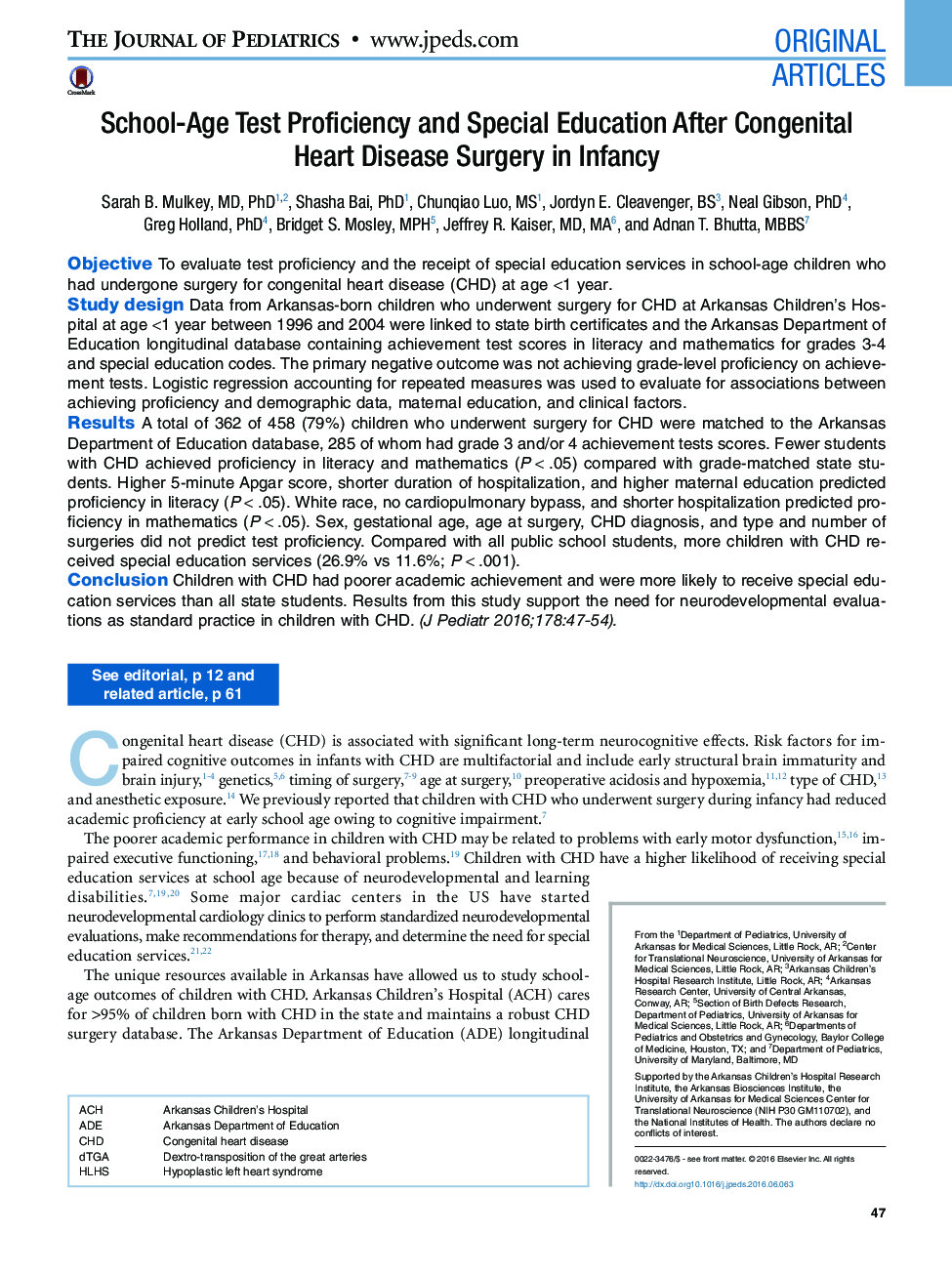| کد مقاله | کد نشریه | سال انتشار | مقاله انگلیسی | نسخه تمام متن |
|---|---|---|---|---|
| 5719750 | 1607422 | 2016 | 9 صفحه PDF | دانلود رایگان |
ObjectiveTo evaluate test proficiency and the receipt of special education services in school-age children who had undergone surgery for congenital heart disease (CHD) at age <1 year.Study designData from Arkansas-born children who underwent surgery for CHD at Arkansas Children's Hospital at age <1 year between 1996 and 2004 were linked to state birth certificates and the Arkansas Department of Education longitudinal database containing achievement test scores in literacy and mathematics for grades 3-4 and special education codes. The primary negative outcome was not achieving grade-level proficiency on achievement tests. Logistic regression accounting for repeated measures was used to evaluate for associations between achieving proficiency and demographic data, maternal education, and clinical factors.ResultsA total of 362 of 458 (79%) children who underwent surgery for CHD were matched to the Arkansas Department of Education database, 285 of whom had grade 3 and/or 4 achievement tests scores. Fewer students with CHD achieved proficiency in literacy and mathematics (Pâ<â.05) compared with grade-matched state students. Higher 5-minute Apgar score, shorter duration of hospitalization, and higher maternal education predicted proficiency in literacy (Pâ<â.05). White race, no cardiopulmonary bypass, and shorter hospitalization predicted proficiency in mathematics (Pâ<â.05). Sex, gestational age, age at surgery, CHD diagnosis, and type and number of surgeries did not predict test proficiency. Compared with all public school students, more children with CHD received special education services (26.9% vs 11.6%; Pâ<â.001).ConclusionChildren with CHD had poorer academic achievement and were more likely to receive special education services than all state students. Results from this study support the need for neurodevelopmental evaluations as standard practice in children with CHD.
Journal: The Journal of Pediatrics - Volume 178, November 2016, Pages 47-54.e1
